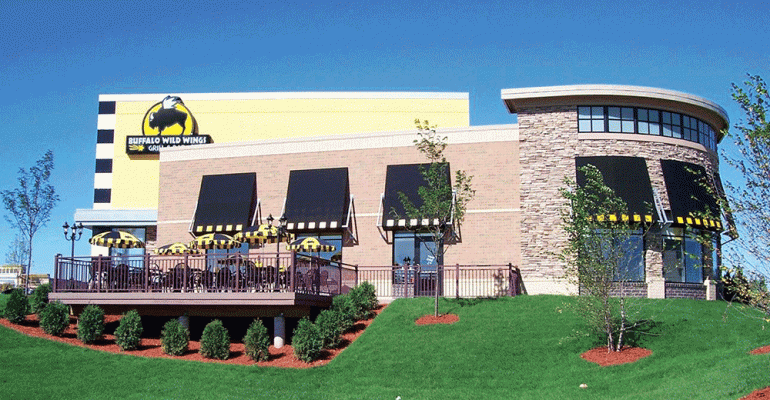 This post is part of the On the Margin blog.
This post is part of the On the Margin blog.
Back in February, I suggested that 2017 was going to be a huge year for restaurant mergers and acquisitions. I had no idea it would be this huge.
With Roark Capital-owned Arby’s Restaurant Group Inc. announcing an acquisition of Buffalo Wild Wings Inc. Tuesday, there have been 33 announced deals for restaurant companies this year.
There is still a month left in the year.
“We’re in a high activity mode right now,” Damon Chandik, head of restaurant investment banking at Piper Jaffray, said during the Restaurant Finance & Development Conference earlier this month.
We did not include in that list the upcoming acquisition of Qdoba Mexican Eats by the private equity firm Apollo Global Management.
Also not included are smaller chains, such as the six-unit Mo’Bettahs — as, quite frankly, they would be badly undercounted. And we haven’t included significant investments that didn’t result in a change of control, like Roark’s investment in the quick-service chain Culver’s. Nor does the list include franchisees.
The immense movement of restaurant chains comes even as some concepts couldn’t find buyers, such as Bravo Brio Restaurant Group Inc., and Fiesta Restaurant Group Inc.
Yet, for the most part, the environment is ripe for mergers and acquisitions. Private equity firms are eager to make investments in the restaurant business. Lenders are perfectly willing to help fund deals. Strategic buyers have been willing acquirers in their search for more growth.
Some buyers are willing to pay extraordinarily high prices for their targets, as Restaurant Brands Inc. did with Popeyes Louisiana Kitchen and JAB Holdings did with Panera Bread Co.
Other companies, like Buffalo Wild Wings, have seen their stock prices fall to the point that they made good acquisition targets. The Minneapolis-based chicken wing chain’s stock price had been down 28 percent from its highs last December when Roark came knocking.
That apparently made it too tempting for Roark. At $157 per share, Roark will pay $2.4 billion, and also assume some debt, giving the deal a valuation multiple of just more than 10 times earnings before interest, taxes, depreciation and amortization, or EBITDA.
That’s a good deal for Roark and Arby’s. Buffalo Wild Wings has potential both for increasing the number of takeout customers and for luring customers who want an experience. While sales have stumbled recently, a lot of chains have seen sales stumble recently. Some time out of the public company limelight could work wonders.
In addition, the company has a lot of white space in international markets.
Arby’s, meanwhile, has surged under Roark and CEO Paul Brown — enjoying six years of same-store sales growth, and increasing unit volumes by 27 percent since 2013. Brown will be the CEO of the combined Arby’s-Buffalo Wild Wings company, whatever it will be called.
How long such an environment continues remains to be seen. The general sentiment is that the hot market for restaurant acquisitions will soon come to an end, especially if the economy appears headed for a recession or if interest rates rise.
But numerous smaller, publicly traded chains have seen their valuations get hammered this year. It’s not out of question that some could find themselves the target of opportunistic buyers.
Jonathan Maze, Nation’s Restaurant News senior financial editor, does not directly own stock or interest in a restaurant company.
Contact Jonathan Maze at [email protected]
Follow him on Twitter at @jonathanmaze

